- Home
- Jim Eldridge
Codename Céline Page 10
Codename Céline Read online
Page 10
“It’s time,” he whispered.
I climbed out of the cellar and followed him out of the back door of the bakery. His battered old van was waiting there. Sitting inside in the passenger seat was Martin, our look-out from the night of the bridge.
I climbed into the back of the van, and M’sieur Lemaître stacked sacks of flour in front of me to hide me. He slammed the rear doors shut. I heard the driver’s door open, then shut; the engine fired up, and we were moving.
As we drove, I thought of the last time I’d made a journey in this van, hidden by sacks of flour in the same way. Then, Pierre had been still alive. Berthe and Mimi had been free. But then, the railway bridge across the Clemel had been intact. Now it was gone.
The van chugged on its way. I wondered who would be coming to pick me up. Would it be the same pilot, Jim? Soon I would be back in England and I could report back to Mr Swinton that the mission had gone as planned. The bridge was gone.
I felt a change in the vibration of the van as we left the road and began to bounce – I guessed we were going across a field. The van stopped. The front doors opened, then the rear doors, and Lemaître hauled sacks away from me so I could scramble out.
Martin was already heading towards the middle of the field, a can in his hand containing petrol to start the fires.
“The plane should be here soon,” whispered Lemaître.
We stood there listening, our ears straining for the sound of the small plane’s engine; as we did, I heard another noise – an engine, but that of a different vehicle.
Suddenly we were illuminated by strong lights, car headlights that had suddenly switched been on. Two, three cars were there, their lights picking us out, and also Martin. Shouts in both German and French were ordering us to put our hands up.
“Germans!” yelled Lemaître.
I was terrified. To be so close to getting away, and now this! Would they shoot us?
I saw Martin drop the can he was holding and he began to run, heading for the far side of the field.
BRRRRRRRR!!!!!
An explosion of rapid gunfire from a rifle burst the silence of the night sky, and Martin tumbled to the ground and lay motionless.
There was no chance of us making a run for it. We’d be dead before we’d moved. Reluctantly, Lemaître and I raised our hands above our heads as the German soldiers surrounded us, pointing their rifles at us.
Then I heard it, the sound of the plane’s engine approaching and then turning as the pilot saw the car headlights and the scene below. There was the cough of a throttle as the plane quickly changed direction, then the sound of its engine was heading away from us, going back to England. Mission aborted.
We were caught.
Chapter 22
Lemaître and I were handcuffed and bundled into the middle seats of a long car, with two armed soldiers in the rear, and a driver and another armed soldier at the front. The car was one of a convoy of three. I noticed that were weren’t heading towards the village, and looked at Lemaître questioningly.
“We are headed for Caen,” he said.
“Shut up!” snarled one of the soldiers. “No talking!”
When we reached Caen we were driven into the centre of the town, the convoy pulling up in front of a building hung with a huge swastika flag. We were pulled out of the car and roughly pushed into the building, being jabbed now and then with the rifles to move us more quickly. We were in the hands of the Gestapo.
We were ushered along a corridor to a metal door. This was unlocked and opened, and we found ourselves in what looked like a cell block, containing four cages made of strong metal. Our handcuffs were taken off us and we were pushed into a cage together. The door was slammed shut and locked, and the soldiers left us, locking the metal door behind them.
We looked around the cage. There was nowhere to sit, so we squatted down on the cement floor. None of the other cages were occupied, although there were signs that someone had been in one of them recently. There was dried blood on the floor of it.
Neither of us spoke, but we both knew what the other was thinking. We were in Gestapo HQ. We had been caught red-handed in the field, shortly after the railway bridge had been blown up. We were not going to come out of this alive.
I don’t think I’ve ever felt as bad as I did at that moment. It had broken my heart when Mum was killed, and when I got the letter telling me that Dad was dead, but this … This was happening to me! I was going to be tortured and killed, just as Mr Swinton had warned me. There would be no time for more missions to help beat the Germans, no time to tell Aunt Abbey how much I loved her, and how sorry I was that she’d be left alone without me. I was terrified about what was to happen to me, and completely miserable thinking about Mum, about Dad, about Aunt Abbey, about the War. I felt so overwhelmed by it all that I wanted to burst into tears, but then I determined that I wouldn’t give the Germans the satisfaction of seeing me cry, of knowing how scared I was.
There was the sound of a key in the metal door, then it opened and a Gestapo officer entered, accompanied by an armed soldier who trained his rifle on us through the bars of the cage.
“Up!” snapped the soldier.
We got to our feet. The Gestapo officer smirked at us.
“Caught like rats in a trap,” he said.
“Who betrayed us?” demanded Lemaître angrily. “Who informed on us?”
“You did,” said the Gestapo officer.
Lemaître looked at him, bewildered.
“What do you mean?” he asked angrily.
The officer shook his head, still smiling.
“You thought you were so clever, buttering up our soldiers, giving them presents of pastries and cakes when they came into your shop. But it struck me, how can you do that, M’sieur Lemaître, and yet the villagers do not despise you or spit at you in the street for being friendly with German soldiers. No, they treat you with respect. Why is that? I wondered.” He shook his head. “You may have fooled the local officer here, but not me. A few days ago I decided to have you watched. I could have had you picked up and brought in for questioning once I suspected you, but I decided to let you carry on, knowing that sooner or later we’d catch you with some even bigger fish for our haul.” He turned his gaze on me. “Like the young lady. Special Operations, I assume? Another one of Winston Churchill’s secret army?”
“I am a French citizen,” I said defiantly.
The Gestapo officer let out a derisive laugh.
“You really think we are that gullible?” he demanded. “I have spent many hours, days even, interrogating your sort. You think I don’t recognize what you are? A spy parachuted in by the English. You are the one who destroyed the bridge.”
“My name is Céline LeBlanc and I am a student teacher …,” I began, but an angry shout from the officer cut me off.
“Stop this nonsense!” he roared. “I will question you first, young lady. Monsieur Lemaître here can tell me about the local Resistance, but you, young lady, are the key one here. You will tell me about the Special Operations Executive. How it works. Who leads it. Where its training camps are.”
My first reaction was shock that he seemed to know so much about the SOE; but then I realized with bitterness that he would know an awful lot. I guessed he’d interrogated captured agents before.
“I’ll tell you nothing,” I snapped at him.
The Gestapo officer smiled confidently.
“Oh, I think you will,” he said.
With that he turned and left the cell block, followed by the soldier. The metal door slammed shut behind him, and we heard the key turn in the lock.
“So, they have brought in Schnell to interrogate us!” muttered Lemaître bitterly
I turned to him, shocked.
“Did you say Schnell?”
Lemaître nodded.
“Sturmscha
rführer Maximillian Schnell. Head of the Gestapo in Caen. A cruel man.”
And the man who killed my father.
……………………………………
We sat on the floor of the cage, leaning back against the wall.
“They will have a listening device somewhere in here,” whispered Lemaître. “That’s how they get most of their information, from listening to prisoners talking amongst themselves.”
“Then they will just learn that I am Céline LeBlanc, a student teacher from Rouen.”
Lemaître smiled.
“All I can give them is my recipes for bread.”
We sat in silence for another twenty minutes or so, then the metal door opened and three soldiers came into the cell block. While two of them kept their rifles aimed at Lemaître, the third ordered me out of the cage and handcuffed my wrists behind my back. The cage was locked behind me, and I was escorted out of the cell block and along the corridor to a door. I was pushed into a room where Schnell was waiting, standing by some shelves examining some nasty-looking tools and weapons.
At the sight of them, and the sight of Schnell standing there with an evil smile on his face, I nearly fainted from fear at the thought of what was about to happen to me. I couldn’t speak for fear of my teeth chattering with terror.
The room was otherwise bare, except for a table and two heavy-looking wooden chairs. There were no windows, just a shaded light bulb.
“Put her in the chair,” ordered Schnell.
The soldiers pushed me down onto the chair, pulling my arms behind me, and I felt my handcuffs released, then felt them bite into my skin as they were snapped shut again, this time fixing my wrists firmly to the wooden strut at the back of the chair.
Please, let me die soon, I prayed silently. Don’t let me suffer the pain of torture!
Schnell walked away from the shelves and sat down on a chair facing me.
“In this room I have a variety of instruments at my disposal,” he said, gesturing at the shelves. “All manner of things to cause you great pain.” He leaned towards me. “Some people say that the worst thing of all is the fear of these instruments. Thinking about the pain they will cause.” He leaned back. “Personally, I disagree. The pain is far worse.” He smiled again, a vicious smile. “I’m going to let you think about what is going to happen to you tomorrow morning, if you don’t answer my questions.” He gestured at the terrifying objects on the shelves again. “Look at them, Miss Céline LeBlanc, as you call yourself, and think of them being used on you. You will save yourself a lot of agony if you tell me what I need to know now.
“Where is the Special Operations Executive based? In London. Elsewhere?”
If I talked, I would be saved from the pain. Or would I? I didn’t trust this man or anything he said. This was the man who’d killed my father. Even if I told him everything, I knew he’d kill me.
My mouth felt dry with fear, but I forced myself to look directly into his face and say: “My name is Céline LeBlanc and I am a teacher visiting relatives.”
Schnell ignored what I’d said and continued, his voice low, almost friendly in tone.
“How were you recruited? How many agents are in SOE? What is your real name? Where did you receive your training? Who was your contact before you came to France?”
“My name is Céline LeBlanc and I am a student teacher visiting relatives,” I repeated.
Schnell sat, watching me quizzically. Then he said: “Very well, if that is how you wish to play it. So let’s try this the other way. You will spend tonight in your cage, thinking about what you will endure from tomorrow morning. And I can assure you, it will be very unpleasant.”
Chapter 23
I didn’t expect to sleep that night, but I did. Despite the fact that there was just a bare, hard concrete floor, and I was threatened with the most painful torture the next day, I fell asleep. Maybe it was the fact that I’d had so little sleep for the past few days, or perhaps being captured had stopped the adrenalin pumping that had kept me going while I’d been in France. Whatever the reason, I found myself being shaken awake in the morning. My first feeling was fear surging through me: it was time to be questioned by Schnell. But then I became aware of the sounds of sirens and alarms and lots of shouting in German. It was Mr Lemaître who was shaking me, and I was bewildered to see that he had a broad smile on his face.
“What’s happening?” I asked.
“The invasion!” burst out Lemaître, his voiced filled with triumph. “I’ve been listening to them shouting! The British and the Americans have landed on the Normandy beaches! The Germans are in a panic! It is the end of the War!”
“Invasion?” I asked, bewildered.
Lemaître nodded.
“It is what we have been hoping for for so long! The Allies on French soil – thousands and thousands of them, with tanks and heavy weapons! At last! They will crush the Germans and push them all the way out of France and right back to Germany, and there they will smash them for good!” He took my hands in his. “If we get out of this alive, remember this day, ma chérie! The 6th of June 1944. The day of our liberation. The day of our deliverance!”
There was a rattling of a key in the metal door, and then it swung open to reveal two armed German soldiers, and another with a bunch of keys. While the other two pointed their rifles at us, the one with the keys unlocked the door of the cage. He pointed at me.
“Come with us!” he snapped.
“Why?” I asked.
“The Sturmscharführer orders it.”
No! I thought. This can’t be! He can’t still be intending to torture me, not with this happening!
“No!” burst out Lemaître. “The war is over! The Allies are here! What is the point of torturing and killing her now?”
“The Sturmscharführer orders her to be brought to him,” repeated the soldier. He jerked his finger at me. “Come!”
“No!” I refused.
“If you do not, we will shoot him,” he said, pointing to Jules Lemaître.
I sighed and stood up.
“They would have taken me anyway,” I said ruefully
to Lemaître.
I walked out of the cage. The soldier slammed the door shut and locked it again.
“Come!” he commanded, and the two soldiers jerked their rifles menacingly at me.
I followed the soldier, the other two bringing up the rear, their rifles clutched firmly in their hands. I couldn’t believe it! Surely Schnell would not start questioning me now, not with the invasion happening!
The general office of Gestapo HQ was in a state of
semi-panic. All the uniformed men seemed to be rushing to clear out cupboards and desks and empty their contents into metal waste bins.
“Destroy everything! Leave no evidence!” barked a voice from an outer room, which I recognized as belonging to Schnell. Then the Gestapo officer strode into the general office.
“Good!” he said, satisfied, when he saw me. “Put her in my car. And put handcuffs on her. We can’t take chances.”
The soldiers handcuffed me, then ushered me out of the building to where the Sturmscharführer’s car was waiting, his driver standing beside it. There were two flags flying on the front wings to identify it as that of a high-ranking SS officer: one a swastika, the other the double lightning flashes which made up the letters SS. The soldiers pushed me into the back seat of the car, then stood back to await the arrival of Schnell, their eyes on me the whole time.
What was going on? Where was Schnell taking me?
And why?
After a few minutes, Schnell appeared carrying a bulky briefcase. He snapped an order to his driver, who saluted and got behind the wheel of the car, starting it up.
Schnell turned to the waiting soldiers.
“Make sure all paperwork is destroyed,” he ordered. “There
must be no evidence left.” With that he raised his
arm in salute, barked “Heil Hitler”, and then got into the back of the car next to me.
As the car moved off, I demanded: “Where are you
taking me?”
My voice must have betrayed my fear. I was confused and very scared.
“Somewhere I can question you without the threat of interruption,” said Schnell.
“But the Allies have invaded. The War is over!” I burst out.
I felt an overwhelming sense of bewilderment and rage. Everyone else would be saved when our soldiers got to Caen, but I was being taken away by Schnell. Away from any chance of rescue.
“The War is not over,” growled Schnell. “Our forces will hold them off and then force them back into the sea. But there is the danger of air attacks in this part of Normandy, and I don’t want to risk losing such a valuable asset.” He gave a smirk. “In this situation, your information will be extra valuable.”
“If you keep me alive, you can use me to trade when the Allies catch up with you,” I suggested, desperate to stay alive: “My life for yours.”
Schnell shook his head.
“No,” he said. “I don’t want you giving evidence against me. All I need is what you know. Then I will kill you.”
…………………………..
Schnell’s car headed south on the main road out of Caen, but our progress was soon hampered by columns of tanks and armoured cars heading north, towards the invasion.
“This is taking too long!” Schnell barked at his driver. “Take the road by the river.”
The driver turned off the main road and cut through a series of side roads until he came to a smaller one which ran alongside a narrow river. There were some German vehicles using this road heading towards the coast, mainly lorries and buses filled with troops, but when they saw the two flags fluttering on the wings of our car, they pulled over to let us pass. We made much better time on this road, and soon we were clear of the advancing German vehicles and racing along.

 Murder at the Ritz
Murder at the Ritz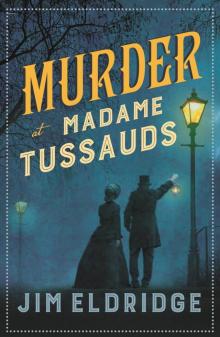 Murder at Madame Tussauds
Murder at Madame Tussauds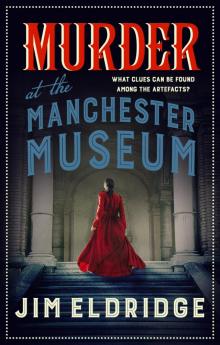 Murder at the Manchester Museum
Murder at the Manchester Museum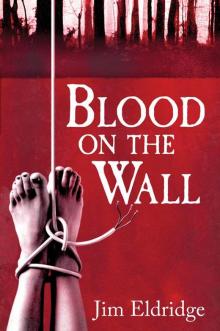 Blood On the Wall
Blood On the Wall 4.3.2.1
4.3.2.1 Jungle Kill (Black Ops)
Jungle Kill (Black Ops) Murder at the Natural History Museum
Murder at the Natural History Museum Murder at the British Museum
Murder at the British Museum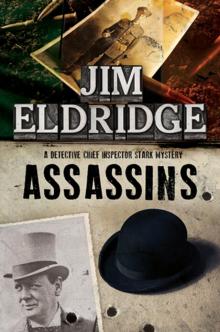 Assassins
Assassins Hunk and Thud
Hunk and Thud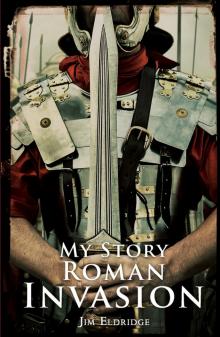 Roman Invasion
Roman Invasion Big Rock and the Masked Avenger
Big Rock and the Masked Avenger The Last Enemy
The Last Enemy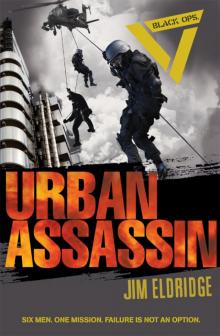 Urban Assassin
Urban Assassin The Deadly Game
The Deadly Game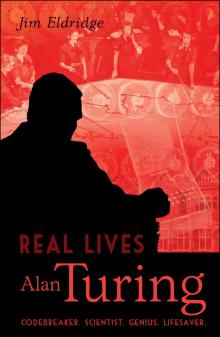 Alan Turing
Alan Turing The Lethal Target
The Lethal Target The Giant Rumble
The Giant Rumble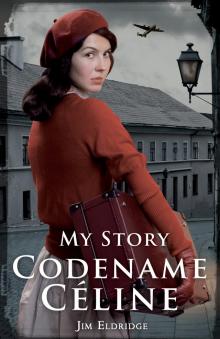 Codename Céline
Codename Céline Death in the Desert
Death in the Desert Escape from Pompeii
Escape from Pompeii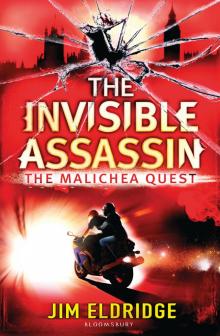 The Invisible Assassin
The Invisible Assassin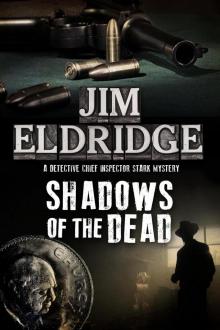 Shadows of the Dead
Shadows of the Dead Jack Versus Veto
Jack Versus Veto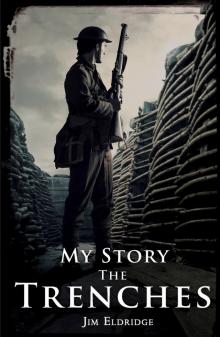 The Trenches
The Trenches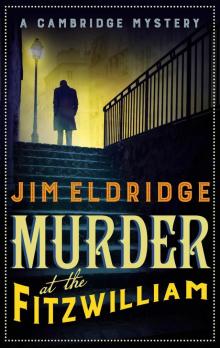 Murder at the Fitzwilliam
Murder at the Fitzwilliam Coming Home
Coming Home